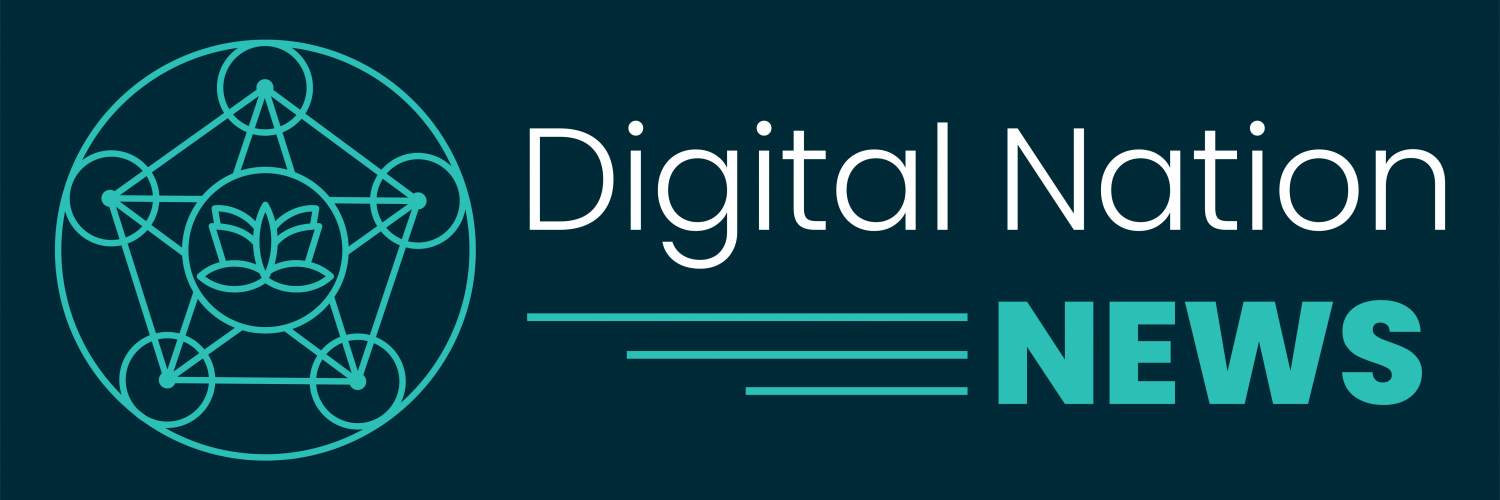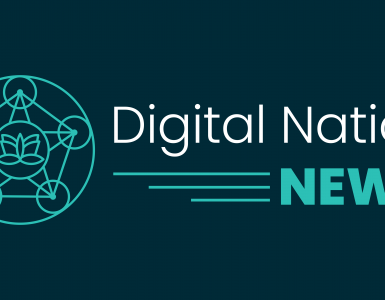Earlier on this month, an outright shitstorm erupted on the web when
HBO maximum announced
(Opens in a fresh loss)
that celebrity Jameela Jamil would determine its coming vogueing competitors tv show
Famous
.
Whines on Twitter reported that somebody away from house-ballroom scene, specifically a person who is not black and queer, must not judge this type of a competition. Jamil, for her component, answered by
coming out since queer
(Opens in a brand new tab)
on Twitter and discussion changed. And
approaching good questions relating to Jamil’s certifications
(Opens in a loss)
to judge house-ballroom, some claimed that Jamil was not truly queer â or that she wasn’t somehow «queer adequate.»
It actually was an on-line mess that, without totally new, reopened old injuries around the queer society and resurfaced anxieties a lot of, such as my self, already considered. Just how queer do you have to end up being to-be «queer sufficient» for the area? And exactly who gets to decide? And exactly why carry out these exclusionary ideas fester in a community of bi known for tolerance, in any event?
Tweet might have been deleted
(opens up in a unique loss)
(Opens in another case)
Tweet may have been erased
(opens up in a fresh tab)
(Opens in a new loss)
Tweet may have been erased
(opens in another loss)
(Opens in a fresh case)
Jamil later on mentioned that she had opted for the
«most improper time» ahead away
(Opens in a fresh tab)
, nevertheless the damage was indeed done. (There have also present rumors about their lying about
the woman conditions and achieving Munchausen’s
(Opens in a brand new tab)
â but that is a complete some other debate.) Online had become a flurry of discussion about who are able to judge ballroom and, much more insidiously, a discussion of who is and is also perhaps not queer adequate.
I am aware this debate well, but it had previously existed for me personally largely internally. I am bisexual and have dated both women and men, but I nonetheless have a problem with questioning whether I will be queer sufficient for your LGBTQ neighborhood, provided my personal appearance («straight-passing») in addition to undeniable fact that I am not monosexually homosexual.
Other queer individuals have alike anxiety I do therefore are more widespread than I was thinking.
I understood, rationally, that I became not by yourself, but I seldom voiced these concerns for fear of the backlash; that folks will say i have to end up being straight or otherwise i’dnot have these types of worries.
The criticism that sparked Jamil’s being released ignited a general public discussion that solidified my personal stress and anxiety. In addition, it shared another reality: different queer men and women have exactly the same anxiety i actually do, also it might be usual than I thought.
«The situation and its particular mass media coverage provides honestly stimulated many thoughts in myself,» stated Mary, a bisexual 25-year-old I spoke to, exactly who requested to go by first-name limited to confidentiality reasons. Mary outlined herself as «semi-closeted,» and she asserted that individuals claiming Jamil needed to categorize herself made their anxious. «it’s difficult for me observe this in a clear-cut way because i will be unsettled from the unhappy public whom apparently desire the lady to make use of a label to by herself.»
Mary’s buddies and her fiancé learn she actually is bisexual, but the woman household will not. «It’s hard to look at a person who is in the general public vision be boxed into a corner to put on a specific term to herself … because I stress equivalent would affect me personally easily outed myself to my family,» Mary said. «simply because types of pushback with Jameela tends to make myself antsy; i believe it can occur to me too. Or any individual.»
A bi girl I spoke to â who wanted to continue to be unknown for confidentiality reasons â was actually alarmed of the charges of Jamil not being queer sufficient. «it was shocking observe simply how much it’s brought people to clearly say becoming bisexual doesn’t move you to queer enough,» she explained over Twitter DM.
Because of the pervasiveness of your stress and anxiety, while the discord it sows around the queer neighborhood, I attempted to discover in which it originated in â and whatever you may do about it.
Dressing «queer» versus straight-passing
Appearance has plenty regarding this. This is because every team â even countercultural ones â possesses its own group of norms users may suffer pressured to adhere to. «personal therapy forecasts that, as soon as a queer individual joins several colleagues, see your face will enjoy a pressure to comply with the party’s norms,» mentioned Pavel Blagov, relate teacher of psychology at Whitman college or university.
You will find a «queer aesthetic» when people, specifically women, usually do not match, they may move since directly. This manifests in style choices, beauty products utilize (or absence thereof), and tresses. While I cut my locks finally thirty days, for example, one of my pals fawned over my personal new «bisexual bob.» It’s a given that a queer individual doesn’t need to «look queer» to get queer â and yet, assumptions pervade in queer tradition just like they are doing among direct men and women.
Jamil matches well around the
«femme»
(Opens in another tab)
queer categorization: this lady has long hair, wears dresses and pumps, and uses makeup. Passing as straight may pay for a bisexual person benefits eg occupations and familial service, but the carpet might be taken out from a bisexual individual at a minute’s observe.
Relating to Kathryn Hobson, an associate teacher of marketing and sales communications researches at James Madison University having discussing and researched womanliness and queer identification, womanliness might be devalued in queer communities. While she thinks the queer community’s opinion toward femininity is evolving within more youthful years, Hobson mentioned this lady has believed that resistance herself as a bi femme.
«will it be a privilege when you have to come-out on a regular basis over and over and over?»
Hobson forced straight back in the concept that queer femmes tend to be blessed. «Is it a privilege if you need to come-out continuously over and over repeatedly as well as?» she asked. «It doesn’t feel just like it when you are living that as your every day knowledge.»
We connect with this, having needed to, say, come out on a first date with a guy basically mention an account about an ex which is actually a lady. If the option is between by using the incorrect pronoun to describe my ex or even appear, I come away even in the event I was maybe not at first willing to do so.
As Shiri Eisner details in
Bi: Records for a Bisexual Revolution
(Opens in a unique loss)
, moving comes at a high price. It could mean staying in a consistent condition of worry about being «found .» It indicates not merely hiding a part of yourself, but covering past encounters and connections (with the exact same gender if driving because directly, with various genders if moving as homosexual).
This can lead to psychological state problems. Bi men and women
perform experience a larger chance
(Opens in an innovative new case)
of despair and various other feeling and anxiety disorders compared to wider populace, based on the San Francisco Human liberties Commission. Additionally, it may create discipline should a passing man or woman’s bisexuality end up being «discovered.»
«entry to âheterosexual advantage,'» wrote Eisner, «… puts a stop to right now whenever their own heterosexuality is âproven or else.'»
Queerness is actually, of course, maybe not a look but a set of attractions, needs, and actions. Even then, but behavior gets scrutinized â such as what amount of queer interactions or intimate encounters you have got versus those with somebody of another type of gender.
«Behavior gets evaluated, as well,» Hobson mentioned. «if you should be a lady, [you get expected] âhow most women perhaps you have slept with?’ Or, âhow many queer folks have you slept with? Or how much cash queer sex maybe you have had?'» Bisexual and non-gay queer people think this pressure to show on their own, not simply in appearance but in their last and encounters. This really is despite the fact that measures never necessarily prove orientation, as much as look doesn’t.
«In queer communities, i believe there’s a propensity to attempt to place men and women into either a hetero or homo box,» stated Hobson.
But exactly why? Numerous queer men and women stay outside binaries that some in directly culture don’t understand. And the majority of, if not all, queer individuals can connect with experiencing othered in heterosexual society at some stage in their own life, otherwise every waking second. So just why do some queer people make fellow queers feel «other,» as they performed with Jameela Jamil?
Biphobia inside queer community
In
Bi
, Eisner writes that that biphobia within lgbt circles is discussed really because bisexual men and women come out to people communities seeking recognition â and quite often feel the same erasure, exclusion, and biphobia they are doing into the direct community rather. «This experience is especially painful,» Eisner produces. «This rejection seems to come from where we least expect it â where we emerged for service.»
This really is because of both into mental and evolutionary factors behind prejudice overall, though you will also discover particular underpinnings for biphobia, in accordance with Blagov. Our very own minds have actually advanced to produce sense of the entire world all around us by utilizing classes. This might lead to an «us vs. them» mentality, also instinctively.
Tweet may have been erased
(opens up in a new case)
(Opens in a brand new loss)
Hobson, also, acknowledged the cognitive reason for this. «regardless of what, people wish to have some sort of way to classify folks â it’s simply much easier,» she mentioned. All of our brains use
stereotypes as a type of «shortcut»
(Opens in a unique tab)
; it is part of exactly how our brains are wired. This means queer individuals aren’t protected from stereotyping those who work in their own society. Even though it is likely to be as a result of biology, stereotyping is certainly not ok and that can be unlearned â particularly making use of depth of on the internet and offline methods by organizations such as for example
GLAAD
(Opens in an innovative new case)
and
The Trevor Venture
(Opens in a case)
.
But it’s crucial that you recognize biphobia as a bias entirely different from homophobia. «The mental literary works on biphobia really does indicate at the least several particular sources of prejudice against intimate minority individuals and, particularly, bisexual persons,» mentioned Blagov.
These reasons include stigmatization about HIV (a right woman can be biphobic towards a bisexual guy, for example, because she thinks he might contract HIV from a guy); stereotypes about promiscuity and commitment instability; and dangers to social energy.
With regards to the latter therefore the «us vs. all of them» mindset, both right and gay men and women could see bisexuals as having one-foot inside the «us» class plus one base in «them» â hence which makes them some type of betrayer, or hazard to power in direct or homosexual area.
The sensation is certainly not special to bisexuals
However, it’s not only bi those who feel experiencing perhaps not «queer adequate» â and it is not merely linked with sexual positioning.
Publisher Cass Marshall is actually a non-binary queer person married to a cis man, whom states they «fly within the radar» by appearing to be a straight lady. «It is a misconception I never ever like to correct, making me feel semi-closeted, since the concept of announcing these things that are not necessarily visible is tough,» Marshall informed me.
Marshall found the conversation about Jamil irritating, and regarding this lady at that moment. «sometimes I’ve had colleagues or peers type toss an elbow at me, stating that they desired a queer or trans author had a perspective on one thing we typed when it comes to,» they mentioned. «It seems suffocating; I do not desire to openly state an integral part of my personal identification I’m grappling within purchase to win a quarrel, but it also hurts to just nod and allow assumption that I’m cis and het roll by.»
Other people we spoke to felt likewise. «It really is an unusual balance because function of unique queer countries can be so vital and I also don’t want to raise my personal knowledge as a white cis straight passing bisexual as the most vital. It is not,» the one who wished to remain anonymous said. «but it is the main story.»
It does feel a lose-lose: acknowledging exactly what moving may manage you, but concealing section of your identification because of this.
Blagov believes feeling «perhaps not queer adequate» provides both intrapersonal and social sources. Queer individuals â like everybody â question whether or not they belong within their group and ask yourself exactly how to/how much to adapt to the group’s culture. «Becoming and being queer is actually a process,» stated Blagov, «not a static situation.»
«Becoming being queer is actually a process, perhaps not a fixed situation.»
People who do not feel «queer sufficient» can be impacted by communications they get from their peers and/or mass media. Hobson agreed, saying that judgment because of the queer neighborhood and outside it generates an anxiety for non-gay queer people.
The queer area possesses its own collection of norms that have to perform with both looks and notches on bedposts. Those criteria aren’t just fake but damaging. And so they may result in internal traumatization (questioning yourself, really trusting you’re not queer sufficient) and outer injury (violence and separation, as in depth by Eisner in
Bi
along with other writings on biphobia).
It’s a mindfuck to consider how a residential district formed from perhaps not suitable community’s heterosexual standard might have unique norms, but it is real. Those norms may alter in the future, but norms will always be a part of any society. Queer folks must realize, as well as realize its OK not to ever suit within all of them.
«There is not a âright’ method to be queer,» Blagov affirmed. «Queer people’s experience, appearance, and degree of emotional investment within their queer identification varies from person-to-person as well as time.»
I did not be «more» bisexual when I cut my hair. I actually do not come to be «more» bisexual whenever I are dating a female versus «less» bisexual as I date a man. And while the «queer sufficient» anxiety continues, speaing frankly about it can help besides bring it to light, but allows us to understand there’s no such thing â personally, for Jamil, for any folks.




 Mobile Software For Android And Ios
Mobile Software For Android And Ios























